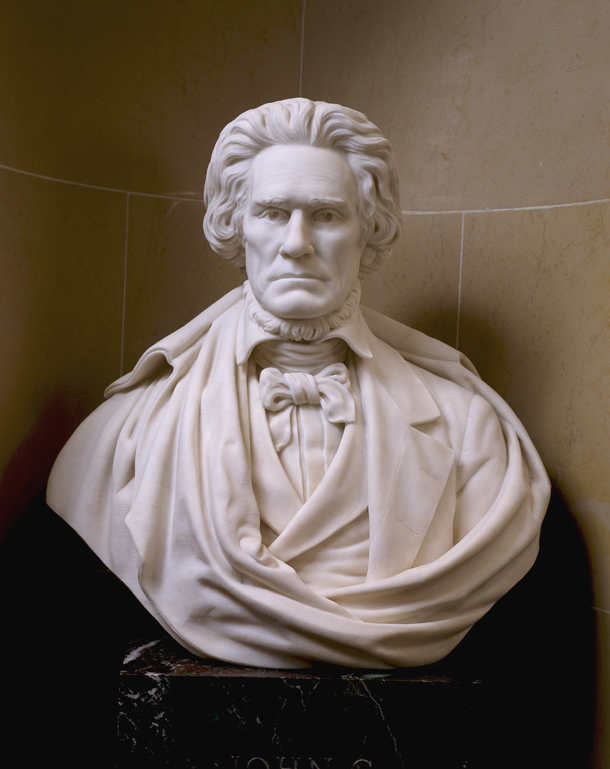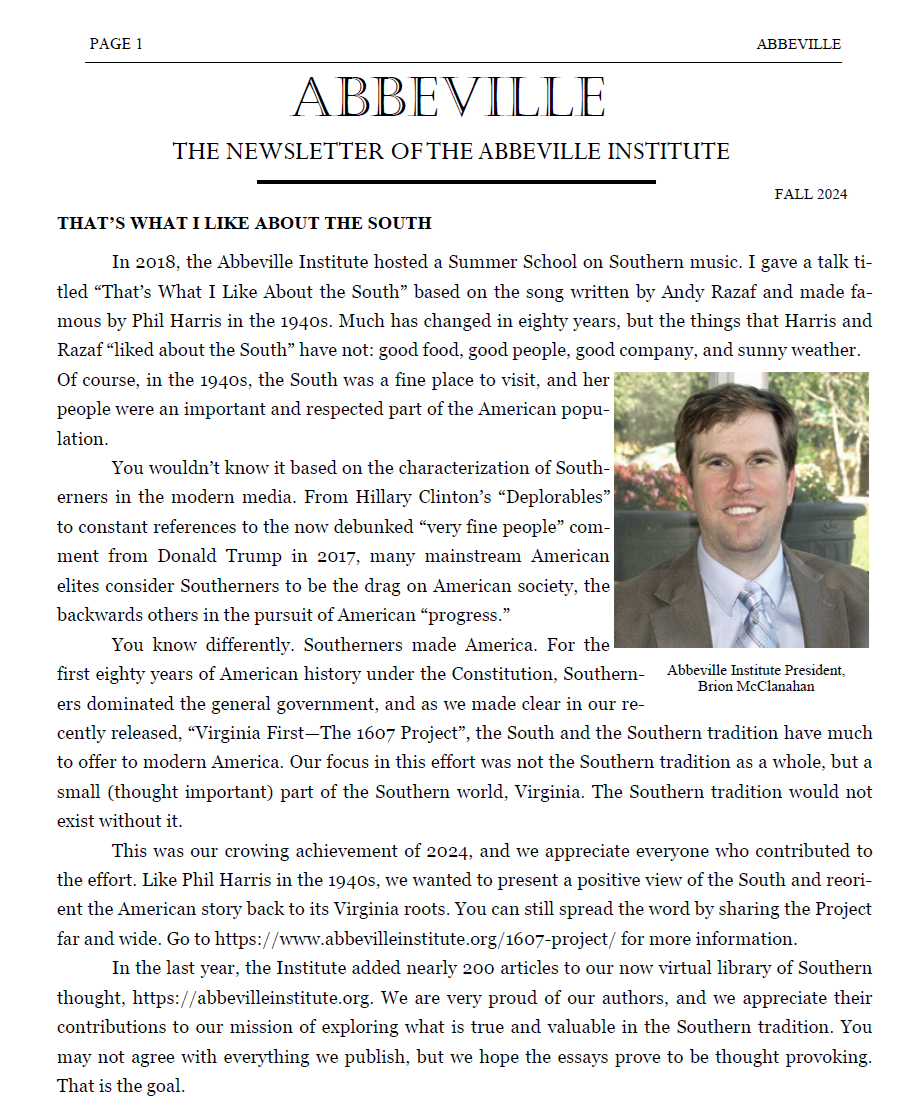Today is John C. Calhoun’s 243 birthday. Several years ago, I took some time to visit John C. Calhoun’s grave in Charleston, SC., a massive stone monument at St. Philip’s Episcopal Church erected in the 1880s to honor the State’s greatest son. Calhoun’s body had been exhumed three times, once from Washington D.C. after he died in 1850 so it could be moved back to South Carolina, once to protect it from marauding Union soldiers during the War (he was placed in an unmarked grave), and...| Abbeville Institute
In 2018, the Abbeville Institute hosted a Summer School on Southern music. I gave a talk titled “That’s What I Like About the South” based on the song written by Andy Razaf and made famous by Phil Harris in the 1940s. Much has changed in eighty years, but the things that Harris and Razaf “liked about the South” have not: good food, good people, good company, and sunny weather.| Abbeville Institute
John C. Calhoun was a brilliant political theorist and distinguished politician, and a noted champion of rights for minorities. The importance of his thoughts is reflected both in the doctrine of states’ rights, as well as in relation to the federal system which serves as a textbook example of effective state management. Calhoun was also one of the first to observe that constitutional provisions which set limits on government powers, if open to interpretation, will almost always be in favor...| Abbeville Institute


